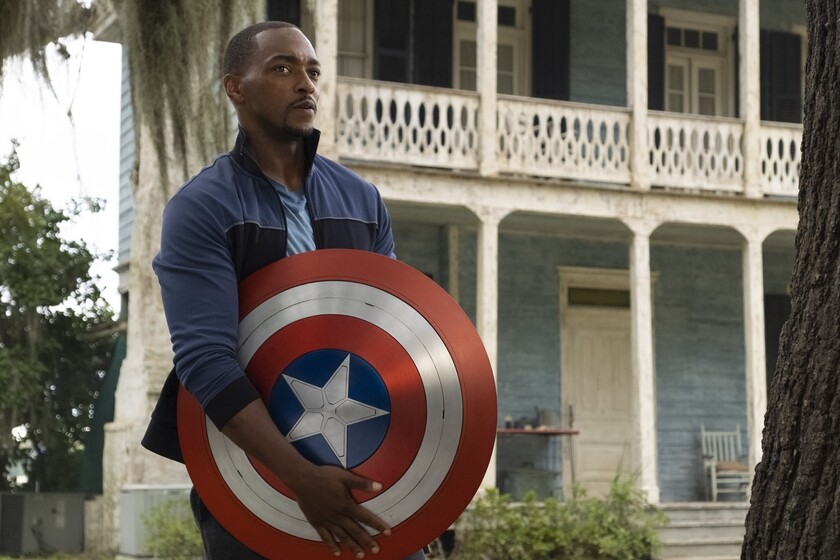This review has mild spoilers for the entire series.
The image, at the end of the fourth episode, of a low angle view of the most interesting character in this new MCU series holding Captain America’s bloody shield, showed that ‘Falcon and the Winter Soldier’ had considerable iconic potential. So what raised a number of issues that the Captain America movies did not enter and they could be exploited.
The very idea of an African-American Captain America and all that that implies, and the doubts of a Falcon who has renounced the shield. A group of villains, terrorists who, far from megalomaniacal plots, have objectives that the viewer can understand. Y a new Captain America completely in the pay of the political interests of the American government, and what exactly is missing to become a patriotic symbol.

Despite being very Yankee-centric on numerous occasions, the ‘Falcon and the Winter Soldier’ series brings to the table a series of problems that affect us all, regardless of our origin. Our relationship with the symbols, official or not. The moral problems of confronting law and order, when it is wrong. The obligation to respect a government that, when for example we speak of minorities, does not return that respect in an equivalent way.
And yet, it does not finish getting it. It is true that when it gets serious, but without forgetting that we are facing a Marvel series (as in the aforementioned shot of the bloody shield, or in the interventions of the royal guard of Wakanda) find the balance between hard-hitting, meaningful political speech and high-voltage fun, which is what a Captain America series should always aspire to. But ‘Falcon and the Winter Soldier’ falls short.
Heroes and villains, but not much
The series lacks something that almost all Marvel movies possess, even the laziest ones, like ‘Iron Man 2’ or the first two ‘Thor’: the fascination for their heroes, seeing them as creatures worthy of admiration, compassion and with stories to tell. Here the series does not make much effort to get into a pair of partially injured protagonists, but whose traumas it does not delve into.
The dynamic of confrontation between the two characters in the first episodes is less fluid than in any buddy movie to use, and the clash that may exist between the two is not properly exploited. It’s true, occasionally the spirit of the first Cap, Steve Rogers, is invoked and both find something in common that motivates them, but the thing remains a somewhat superficial emotional trigger.

All this curdles in a frankly lazy episode, the fifth, brimming with sloth filler and shot like a regular TV movie, unworthy of Marvel media exhibitionism: two (two!) musical montages, one fixing a ship and the other with unnecessary training, in an hour or so where two potential villains face off -but at the same time with common elements (the terrorist and the new Captain America) – fade into nothing.
In between, a third, grossly underutilized villain (the way to get Zemo out of the action is unworthy even for a semi-parodic nemesis like this one), whose motivations to help or not are never clear. And a series of powerful messages, but they never land. The final episode, with a moderately interesting start of action taking full advantage of Captain America’s shield, closes with a stretch of obvious and unsubtle speeches (and that the subject of the black supersoldier could have been explored a lot and well). Marvel can be political and work (here’s the ‘Winter Soldier’ movie), but it needs heroes to hold its own.
